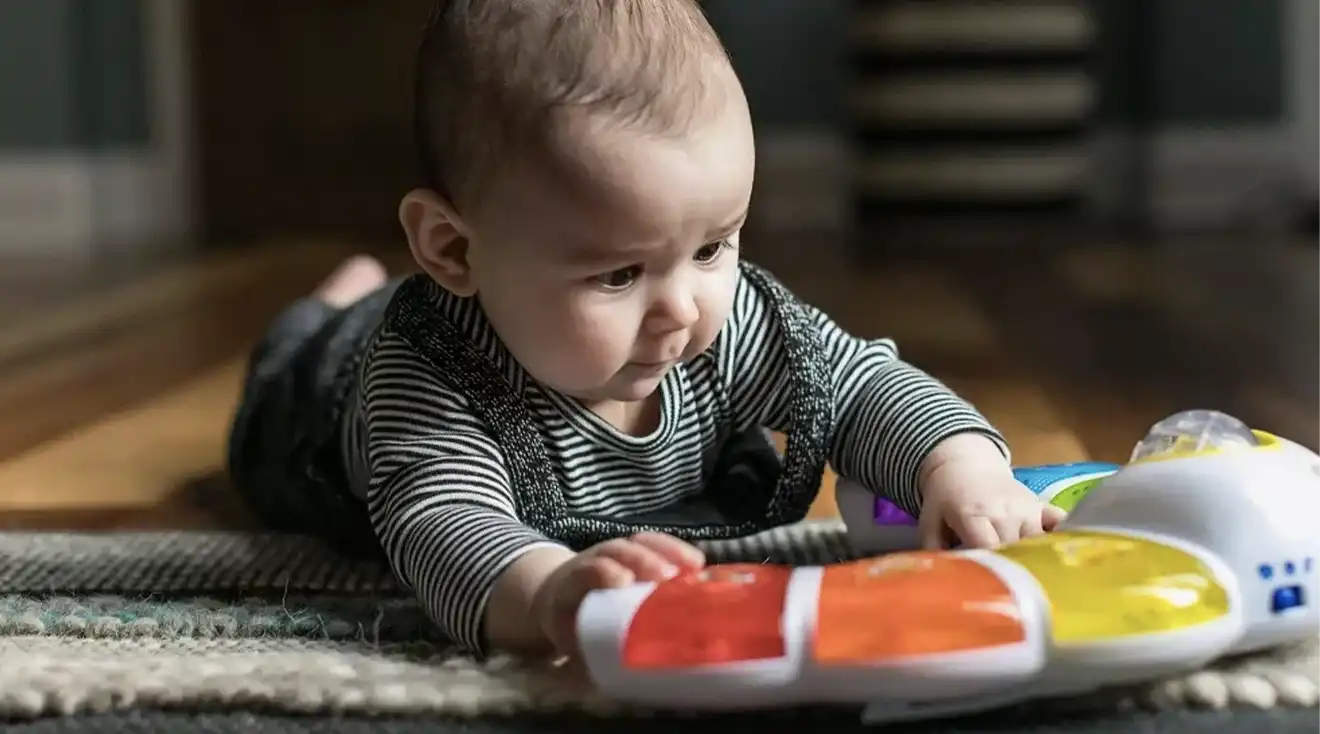The ubiquity of mobile devices in today's society is such that the American Academy of Pediatrics (AAP) states that 92 percent of 1-year-olds have already encountered such technology. Parents often resort to the use of mobile devices or television as a means to occupy their children during lengthy car rides, while waiting in queue, or during the rush of preparing dinner.
However, despite the convenience technology offers to parents, it’s not necessarily beneficial for infants and young toddlers. Precisely, the AAP suggests that no exposure to screens for children under 18 months, except in the context of video chatting with a friend or a family member.
Moreover, even for children older than 18 months, the screen-based media session should be limited and supervised carefully. This is to ensure that the child's exposure to the digital world aids rather than hampers their development.

The question that thus arises is why is the television detrimental to infants' development? A primary reason is that screen-based media such as television, digital games, videos, and e-books do not facilitate early learning or brain development.
During the initial two years of life, the cognitive, motor, language, and social-emotional skills of infants undergo massive strides. For instance, the difference between an infant who can’t smile yet and a walking and talking 2-year-old marks the extent and speed of this development.
Such learning is most beneficial when toddlers interact with their surrounding world and the people in it, rather than a digital screen. Even if the media in question seems educational, young toddlers and infants don't derive substantial mental stimulation from it.
The reason being, children under 18 months are incapable of comprehending how digital symbols on a screen correspond with the real world. As such, they don’t extract meaningful messages or information from their screen experience.
Screen time not only lacks the capability to deliver benefits to infants and young toddlers, but it can also have a detrimental impact on their language and reading skills, as well as short-term memory according to the AAP. Additionally, it is also known to disturb the child's sleep and hamper their capacity to pay attention.
Considering such drawbacks, some alternate ways to keep your child engaged during your busy times can include setting them up with a few toys either on a seat or a blanket. Ensure that you both can see and hear each other through this period, even if you simply make periodic comments or glance at them.
Simple acts of interaction such as these teach children more than what a television show could. An exception can be made for FaceTime chats with family or friends when the child can't see them in person.
Although this activity is also screen-based, the child gets personal interaction crucial to their development. The key is to ensure that video chats do not replace the child's time spent playing and exploring their surroundings in real life.
While the AAP maintains that babies should not watch TV or use screen-based media, it is acceptable to expose toddlers above 18 months to supervised, high-quality screen content in small doses. Waiting till the child turns 2 before introducing them to screens is even better.
From ages 2 to 5, the AAP suggests limiting media use to a maximum of one hour a day. At the age of 2, children start gaining the capacity to learn skills such as problem-solving, literacy, math, and healthy social behavior from high-quality TV shows, videos, or games provided they are accompanied by an adult.
Children can derive more value from screen time if you observe content with them and have a conversation about it afterwards. As they begin to explore screens, you can ensure they develop a healthy relationship with media by choosing quality content, placing certain restrictions, and ensuring a balanced approach to use.
Consider selecting short, interactive shows designed for toddlers and encourage your child's verbal interaction during the viewing process. The use of paper books as opposed to e-books is recommended to minimize distractions, but if e-books are used, select stories without too many add-ons and read along with your child.
Strive to engage in shared viewing sessions as much as possible as it opens the avenue for conversations that help the child derive more learning from screen time. You can initiate discussions about characters and scenes during viewing and continue the dialogue later using aspects of the show as conversation starters.
Avoid leaving the TV running in the background as it discourages in-person interactions and serves as a distraction. Factually, with a running television in the backdrop, parents reportedly speak 170 fewer words per hour to their toddlers compared to times when the TV is off.
Steer clear of using media as a means to soothe your child as it adversely affects their emotional development and ability to cope with emotions independently. Finally, do not purchase a show or game solely based on its claim of being child-friendly or educational. This is because a majority of them lack scientific evidence to validate their claims.
In summary, while it can indeed be difficult to keep your child away from screens till they are at least 18 months of age, the benefits of in-person interaction and learning that they will gain from such a practice are well worth the inconvenience.